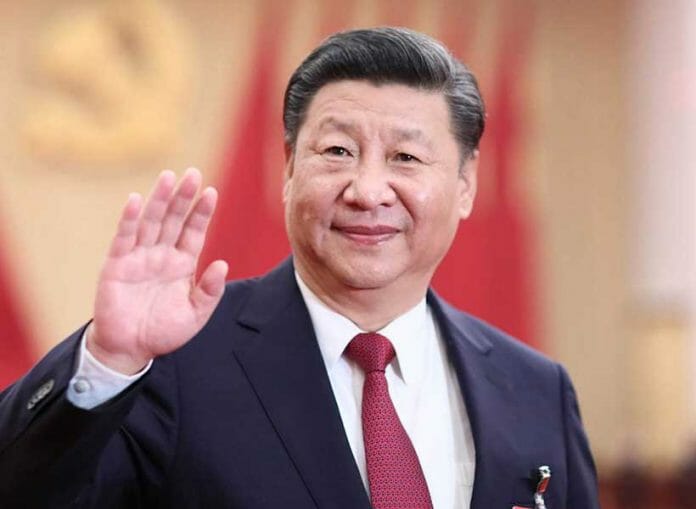Xi Jinping will next week conclude the political coup he set in motion five years ago, when he opens a Chinese Communist party congress that will confirm him as its leader — and as head of China’s military — for a third five-year term. His reappointment as head of state, at the annual session of China’s parliament in March, is a fait accompli.
In 2017, Xi dramatically disrupted precedent by beginning his second term without designating a successor as party leader, as his two predecessors had done. Shortly thereafter, China’s parliament scrapped the two-term limit on the presidency, paving the way for Xi to rule for life if he chooses.
As a result, he stands alone at the top of Chinese politics in a way that no other “paramount leader” has done since the party’s revolutionary hero, Mao Zedong. Even Deng Xiaoping, a veteran of Mao’s revolution and architect of China’s economic miracle, had to contend with powerful peers who were skeptical of his reform programme, FT.com cited.
By contrast Xi has, over the past 10 years, managed to sideline potential rivals on the Politburo Standing Committee. This seven-member body at the top of the party’s power structure was previously a guardian of the “collective” leadership ethos that prevailed under his two predecessors, Hu Jintao and Jiang Zemin.
Xi is the “princeling” son of a senior party cadre, Xi Zhongxun, who was purged by Mao. Later rehabilitated, he emerged as one of Deng’s lieutenants during the early reform era. Xi’s father seemed to understand that the party’s grip on power would be more secure, paradoxically, if it relaxed its control over certain aspects of the economy and civil society. One of the big mysteries about Xi is why he appears not to have inherited much of this pragmatism and how he came to believe, as he said at the party’s previous congress in 2017, that “government, military, society and schools — north, south, east, west and centre — the party is leader of all”.
Growing up among the party elite conferred no immunity from the vicissitudes of Maoist China. As well as seeing his father purged, Xi was “sent down” to labour in the countryside during the cultural revolution, along with tens of millions of other youths of his generation.
That hardship has been romanticised by Xi’s propagandists as evidence of his alleged affinity for — and understanding of — the common man and woman. Distance from Beijing also proved a hallmark of his subsequent political career, as he worked his way up the party hierarchy through a series of postings in central and eastern provinces.
Along the way Xi was married twice — the second time to a famous singer, Peng Liyuan. Uncharacteristically for a man of the people, the couple’s only child, a daughter, was sent to be educated at Harvard.
Chris Johnson, a former top China analyst at the CIA, says Xi will probably orchestrate “a fairly significant turnover” at the top of the party at next week’s congress, further cementing his grip on power. “Xi wants transformative approaches,” Johnson says. “He cannot stand all of the vagaries of the old collective leadership ways of doing things. He hates those approaches because he believes they breed laxity and corruption, which can destroy Leninist systems. He condemns it on a regular basis and he’s gotten rid of most of it.”
It is telling that among Xi’s global peers, his longest and closest relationship has been with Russia’s Vladimir Putin. The two refer to each other as “best friends” and exchange birthday gifts and greetings. At one meeting in 2017 Putin, flanked by his aides, jokingly referred to Xi as a “lone warrior” as the Chinese president sat by himself, waiting for his team to arrive. Putin’s observation, made four months before Xi outmanoeuvred his peers at the party congress, proved prophetic.
For many people in China without the freedom to say so openly, and for the US and its allies, Xi’s unchecked authority is a bad omen for the country’s future. Over the course of his second term, his administration extinguished all embers of dissent at home, interned more than 1mn Muslim Uyghurs without due process, imprisoned dozens of pro-democracy activists in Hong Kong and insisted on a “zero-Covid” policy that has crushed the world’s second-largest economy with its frequent and uncompromising lockdowns.
One Chinese lawyer, who recently left the country for the US, told the Financial Times that his decision to emigrate was partly because he was so demoralised by the party’s relentless advance under Xi. This was symbolised by banners displayed in judges’ offices and court rooms proclaiming: “The party’s cause comes first, the people’s interests come first, the constitution and the laws come first.” No one seemed to note that, as written, the people’s interests and the constitution and the laws did not, in fact, come first.
This month, a local government official in a coastal tourist town voiced similar disquiet over China’s direction of travel under Xi. “This is the third year of fighting Covid and there are no real policies in place to help the economy recover,” he complained. “I cannot understand why local coffers are required to spend money year after year on quarantine hotels and mass testing. But we can only do what the centre says, right? Do we have any other choice?”
China’s lone warrior has made it increasingly clear that they do not.









